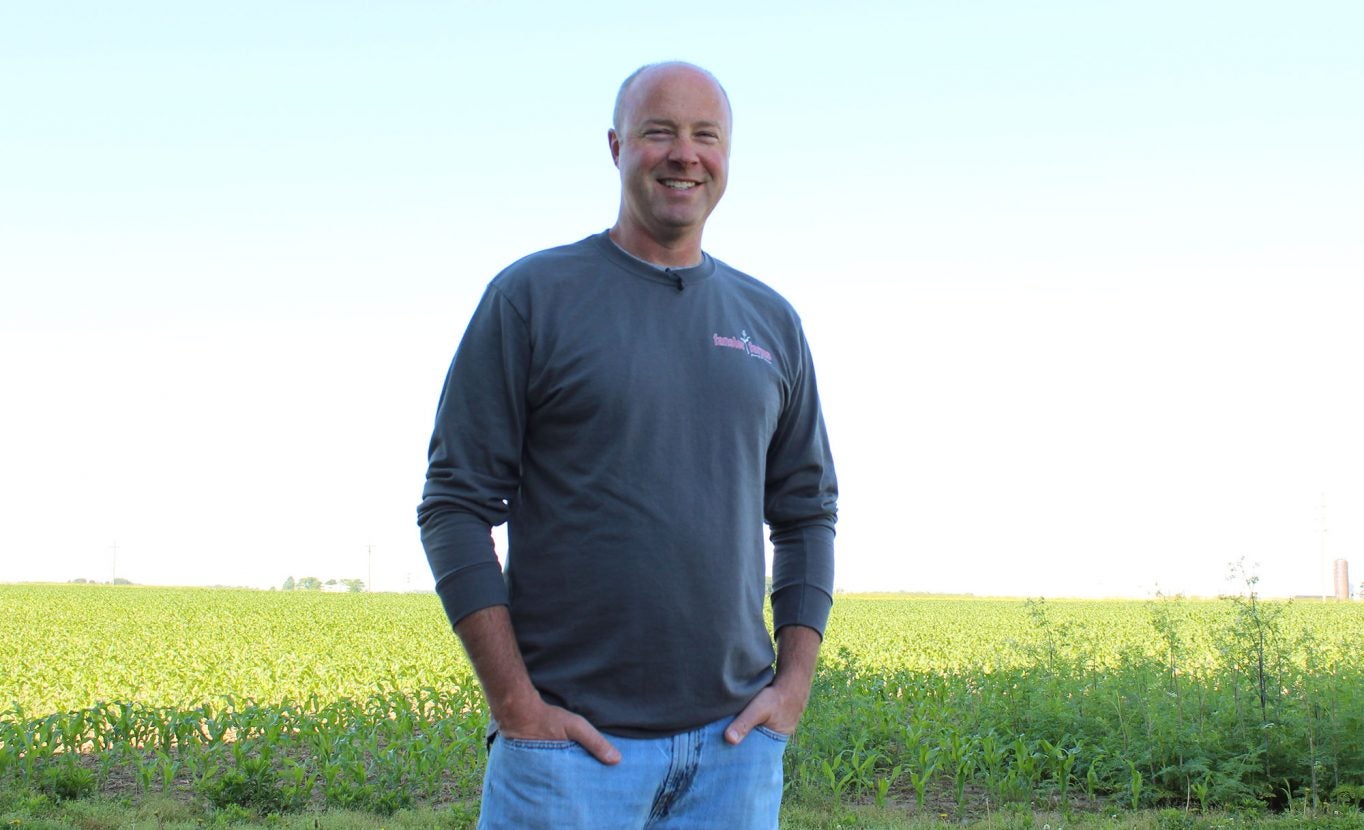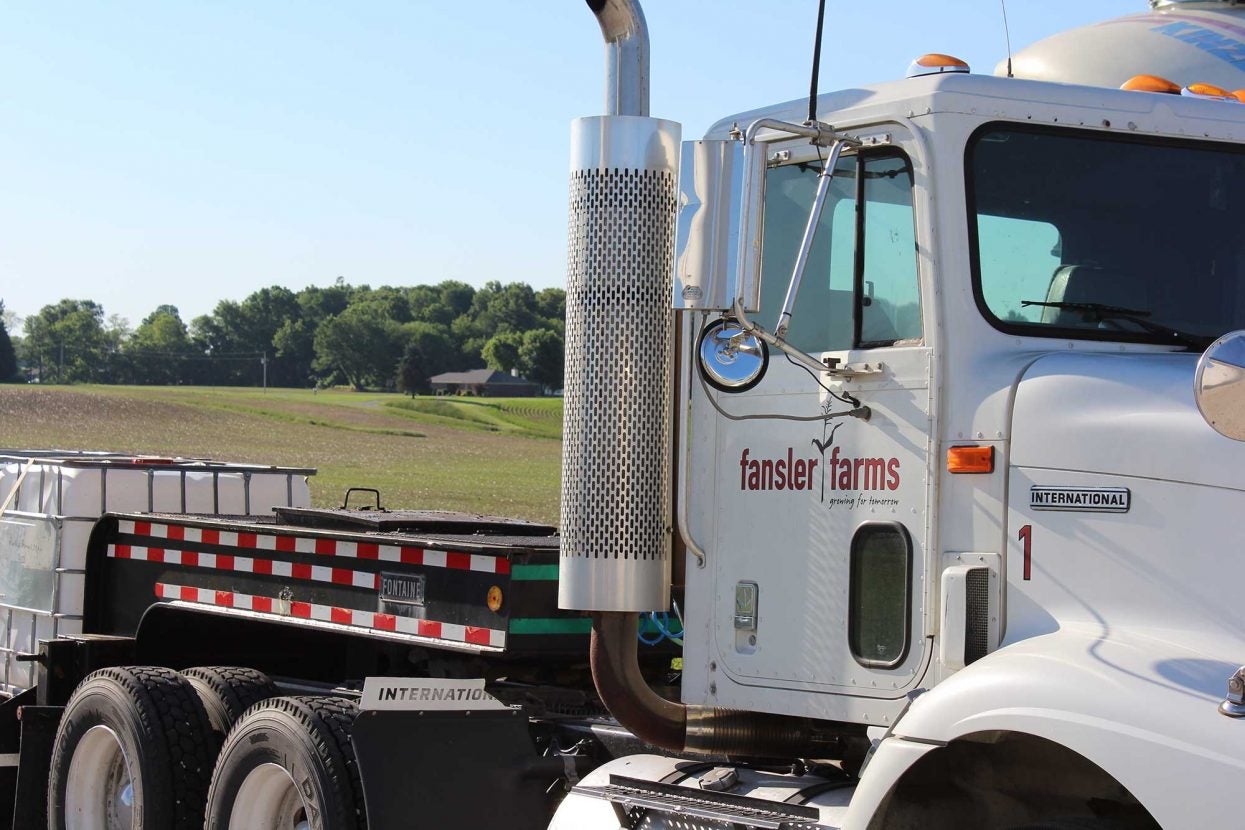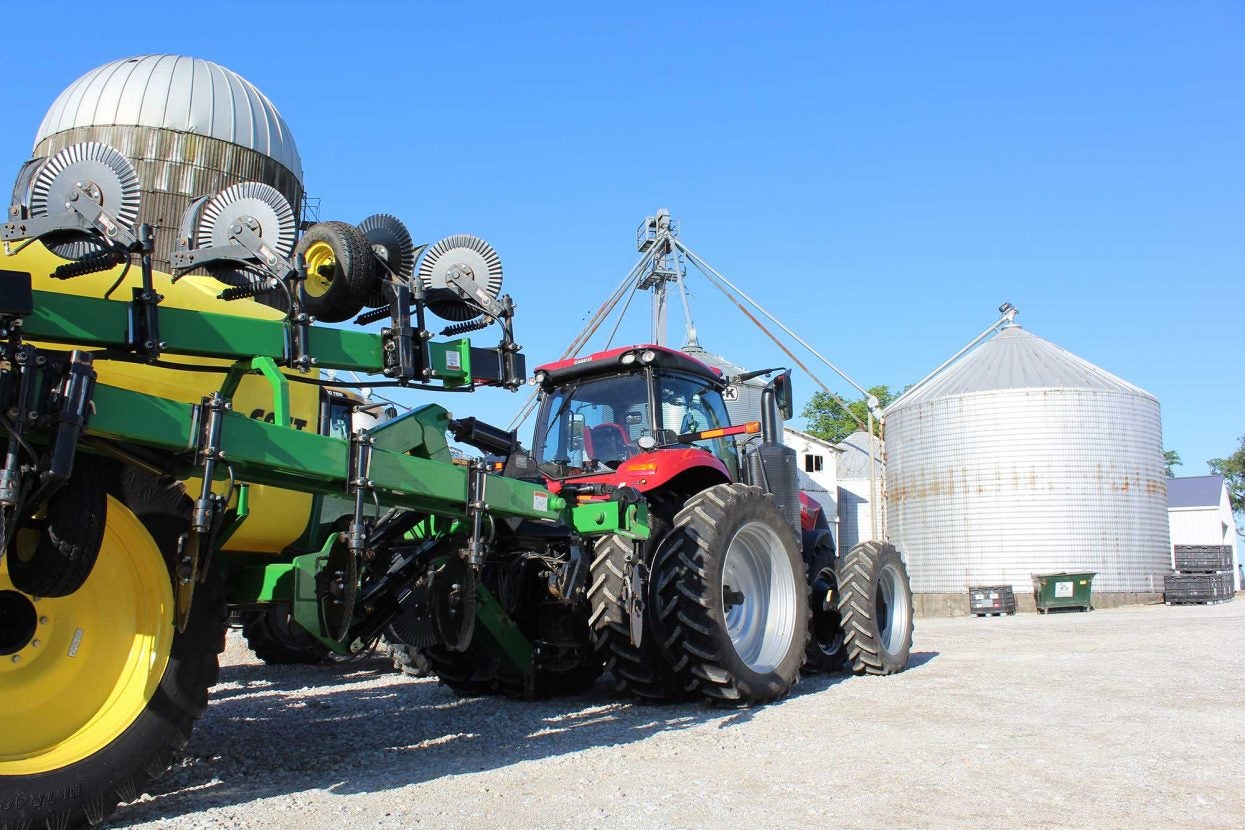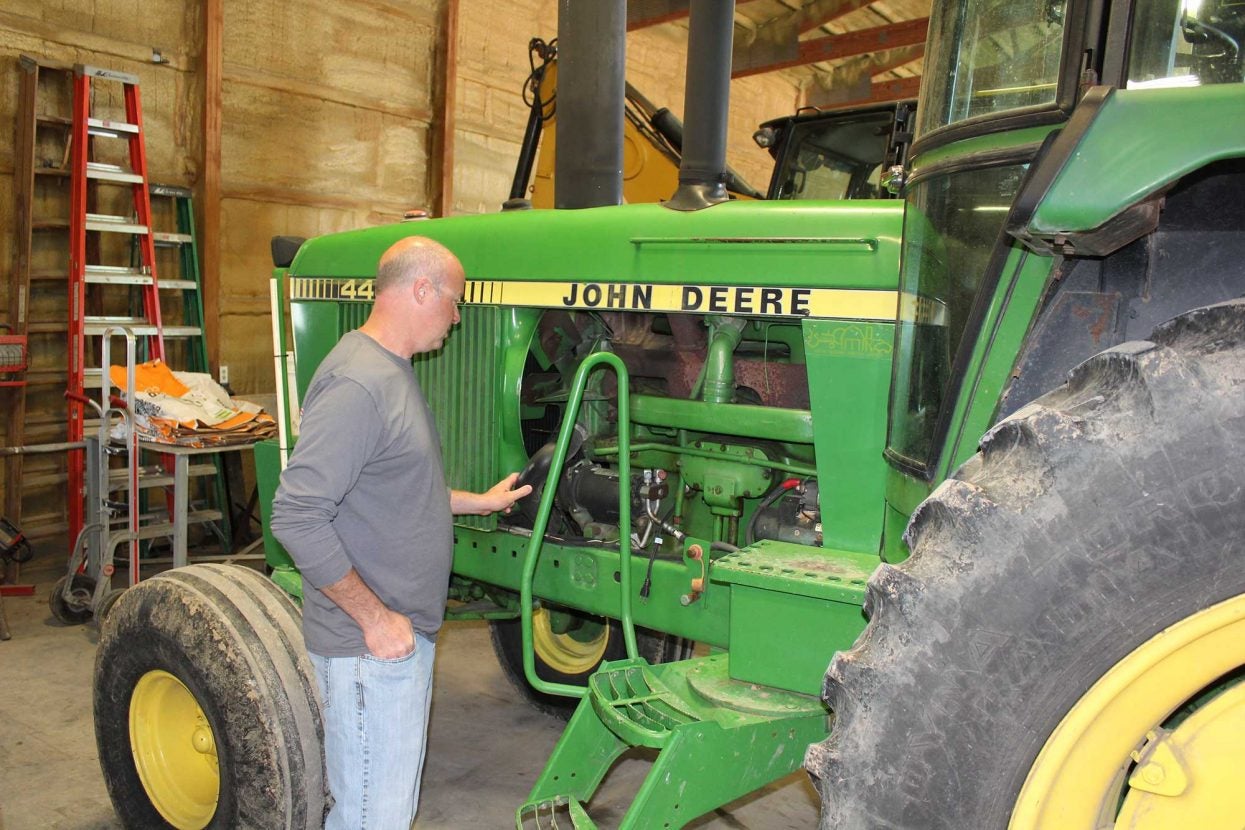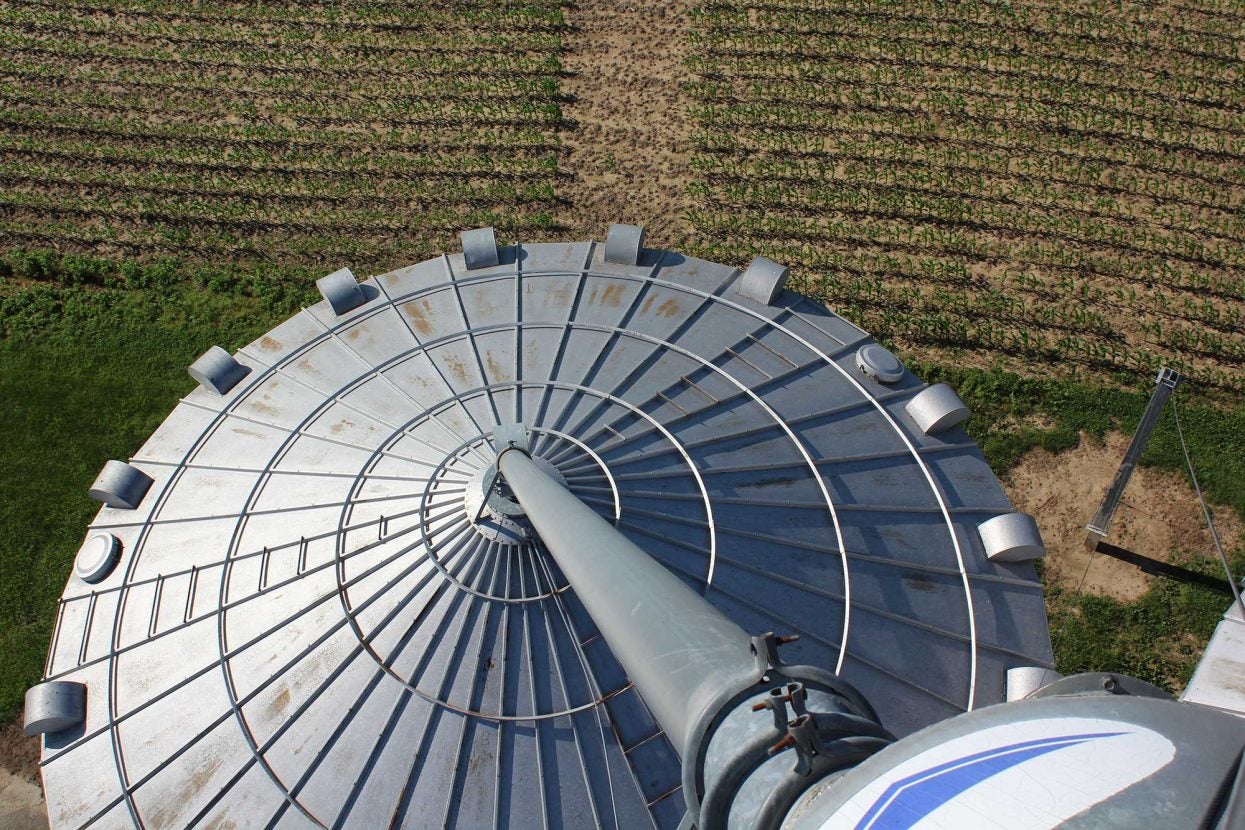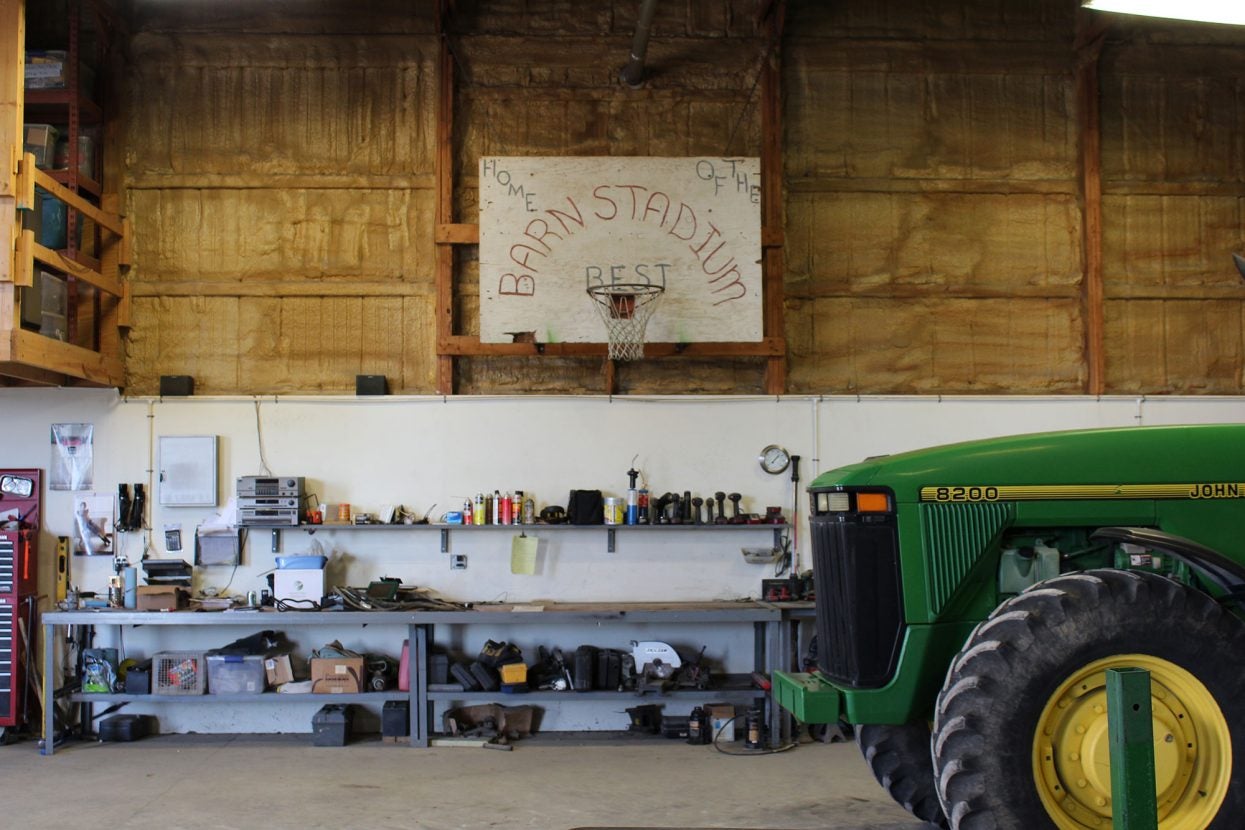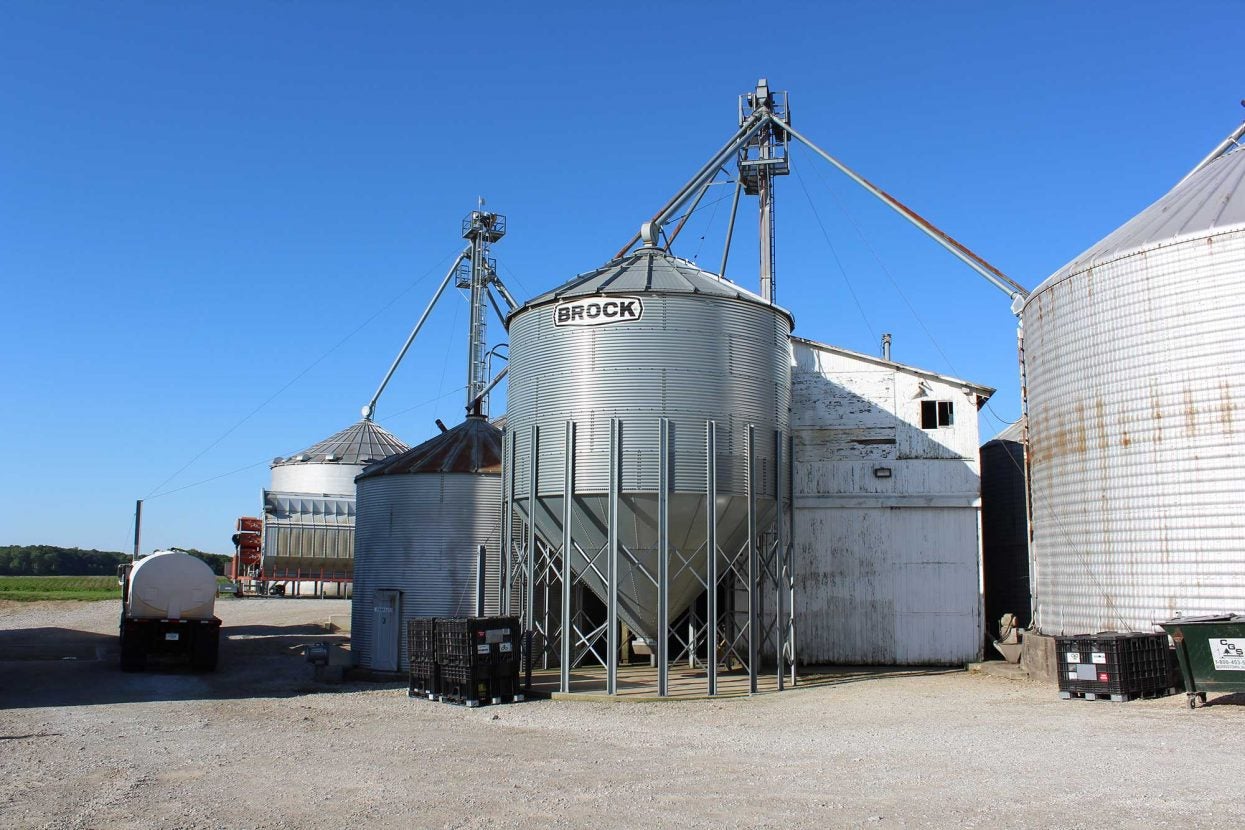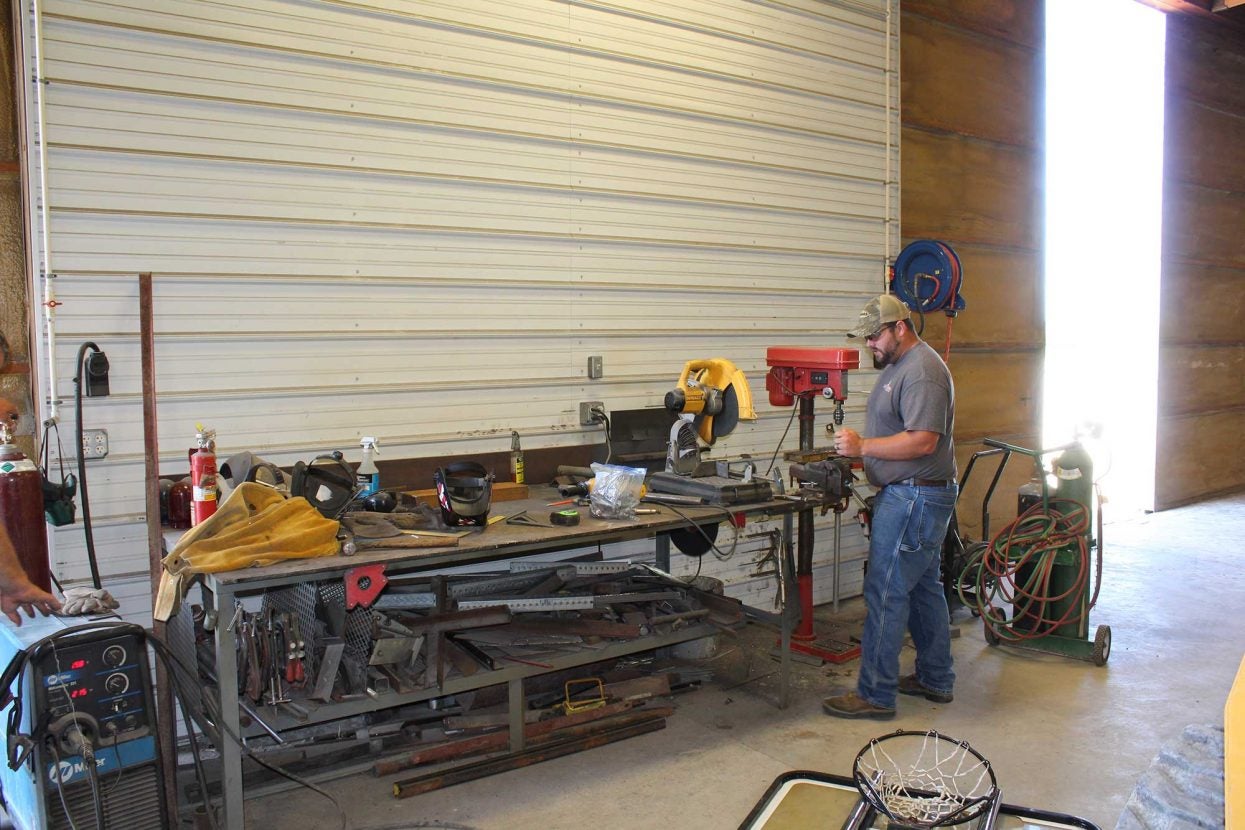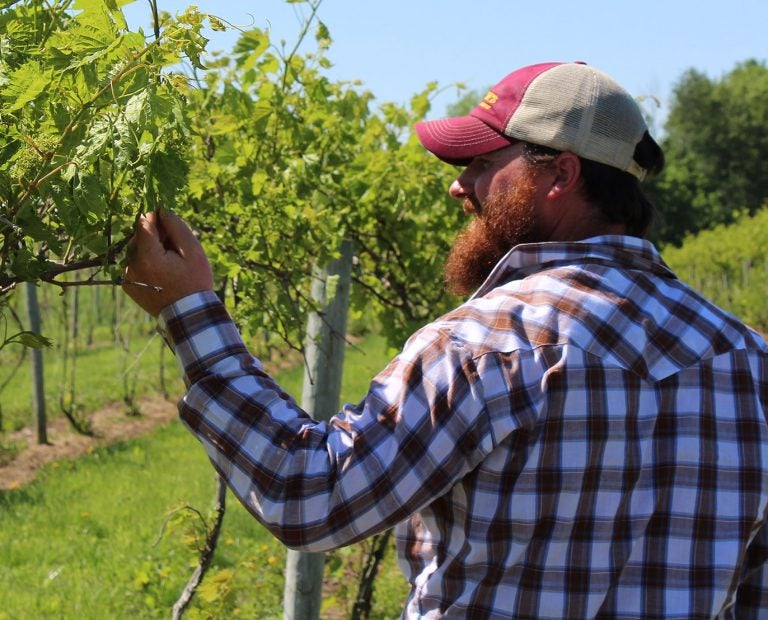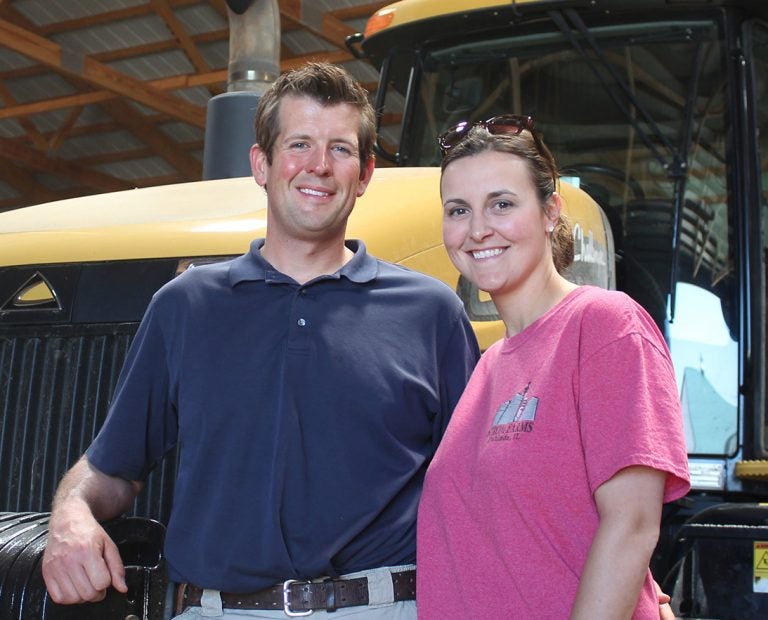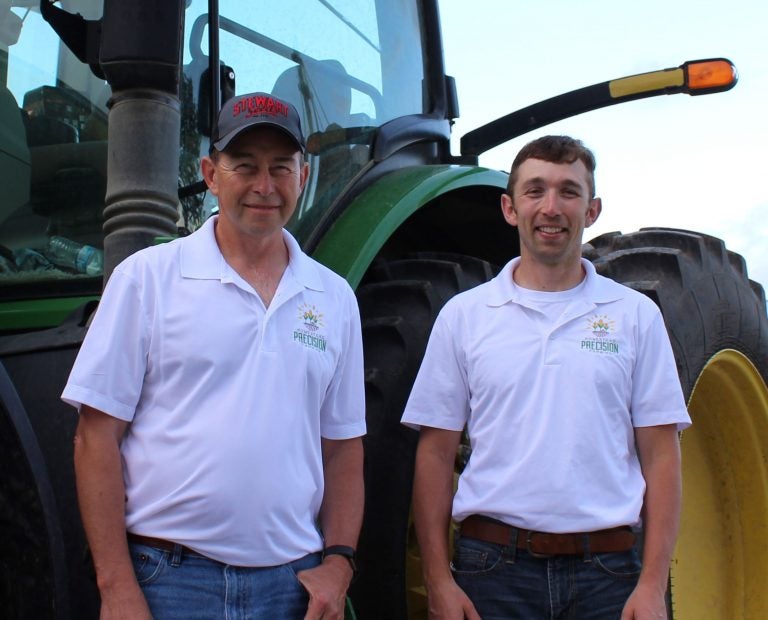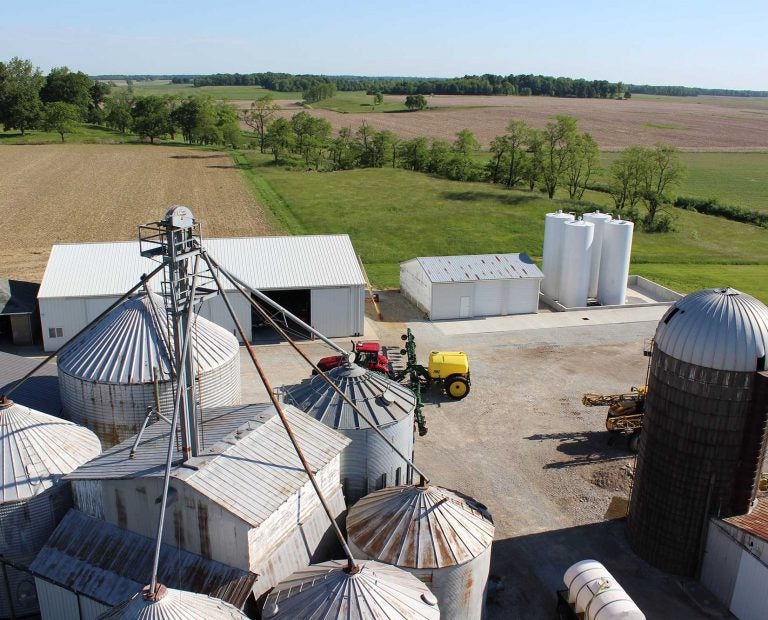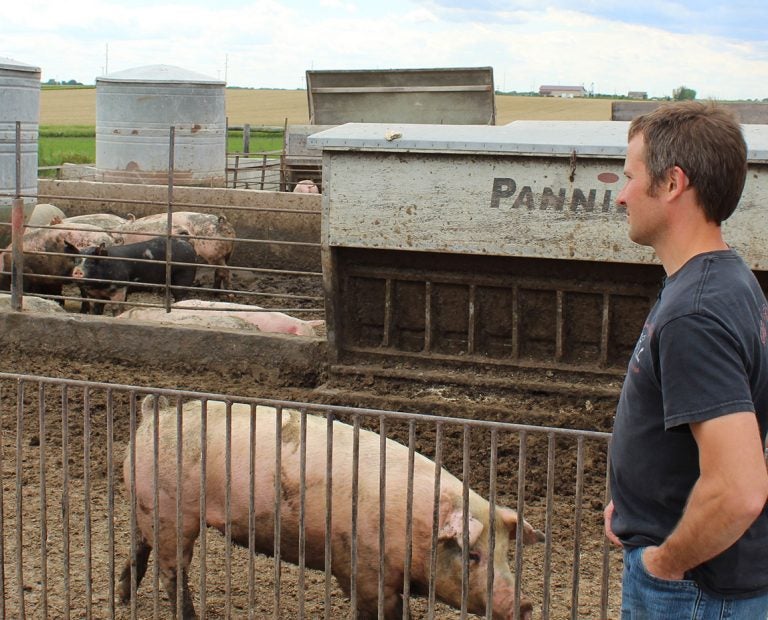Fansler Farms
Bio
Though the Central Indiana community that Andrew Fansler grew up in was heavily invested in agriculture, Fansler himself didn’t come from a farm family. He was 14 when he first began working on farm, and only a few years later, he began renting land — a mere 42 acres.
Today, Andrew, 38, has grown his operation into one that now seeds well over 4,000 acres annually and employs four full-time people. The farm produces soybean seed for national companies, conventional beans for exports, yellow and white food-grade corn, and commodity corn.
“One big thing that I really stress is that we are a family, and this is a family farm,” the St. Paul farmer said. “We are a larger farm, but we work as a close group.”
As a first-generation farmer in a state where ag roots run deep, there was a lot of initial skepticism about whether he’d make it. Yet the reach of his land continued to expand; he acquired more equipment; and more structures such as grain bins were added to the site. His efforts caught the attention of Bayer Crop Science, which in 2015 awarded him the Young Farmer Sustainability Award.
“They just couldn’t believe that I was a first-generation farmer and doing some of the things that we’re doing,” Andrew said.
Fansler Farms uses cover crops, field tile, and variable-rate fertilizer applications. It also practices no-till farming and does annual soil tests.
“For the long-term, finding that balance of financial sustainability, social sustainability, and agricultural sustainability — that’s what Bayer really liked when they looked at my background. We’re trying to find a way to put all those things together.”
